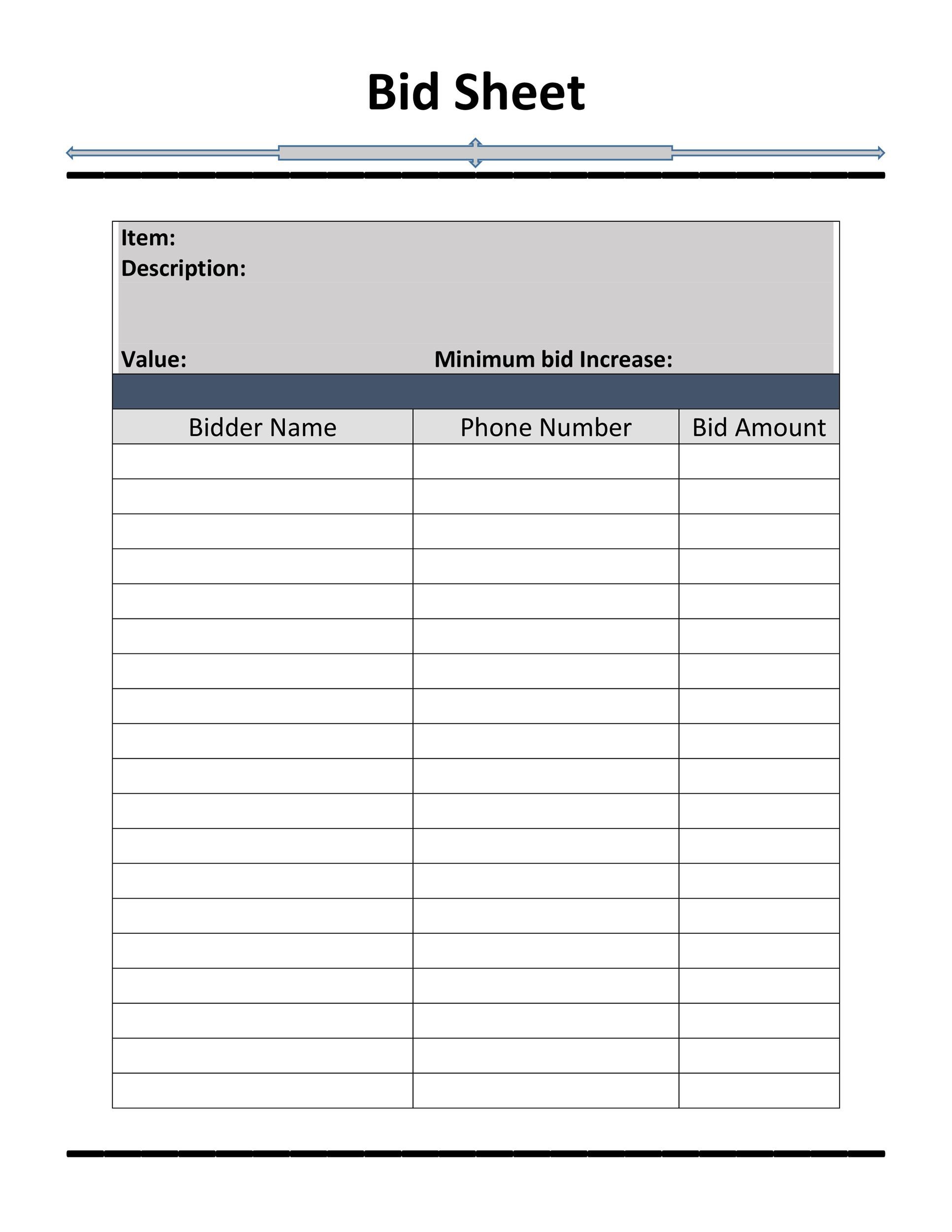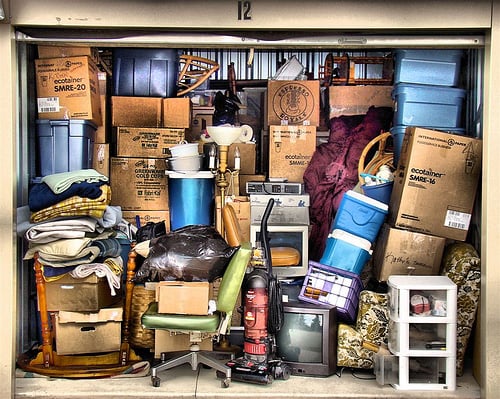Understanding the Storage Unit Auction Process
Storage unit auctions have become increasingly popular in recent years, thanks in part to reality TV shows that showcase the thrill of bidding on abandoned storage units. But before you can start bidding, it’s essential to understand the basics of the storage unit auction process. In this article, we’ll delve into the world of storage unit auctions and explore the rules, types, and best practices for participating in these events.
Storage unit auctions typically occur when a storage unit tenant fails to pay their rent or abandons their unit. The storage facility will then hold an auction to sell the contents of the unit to the highest bidder. The auction process usually begins with a preview period, during which bidders can inspect the unit’s contents. This is an opportunity for bidders to assess the value of the items inside and determine their maximum bid.
There are several types of storage unit auctions, including live auctions, online auctions, and sealed-bid auctions. Live auctions are the most common type, where bidders gather at the storage facility to bid on the unit in person. Online auctions, on the other hand, allow bidders to participate remotely through a website or platform. Sealed-bid auctions require bidders to submit their bids in writing, and the highest bidder wins.
It’s worth noting that storage unit auctions are governed by state and local laws, which vary from jurisdiction to jurisdiction. For example, some states require storage facilities to provide a minimum of 30 days’ notice before holding an auction. Additionally, some states have specific rules regarding the sale of certain items, such as firearms or vehicles.
Now that we’ve covered the basics of storage unit auctions, you may be wondering: can you bid on your own storage unit? The answer is not a simple yes or no. While it is technically possible to bid on your own storage unit, there are some important considerations to keep in mind. We’ll explore this topic in more detail in the next section.
Can You Bid on Your Own Storage Unit? The Answer May Surprise You
One of the most common questions asked by storage unit owners is: can you bid on your own storage unit? The answer is not a simple yes or no. While it is technically possible to bid on your own storage unit, there are some important considerations to keep in mind.
In most states, storage unit owners are allowed to bid on their own units, but there are some restrictions and regulations that apply. For example, some states require storage unit owners to disclose their ownership interest in the unit before bidding. Additionally, some storage facilities may have their own rules and regulations regarding owner bidding.
It’s also worth noting that bidding on your own storage unit can be a complex process. Storage unit owners must navigate the auction process, which can be time-consuming and unpredictable. Additionally, owners must also consider the potential risks and liabilities associated with bidding on their own unit.
So, why would a storage unit owner want to bid on their own unit? There are several reasons. For example, owners may want to recover their investment in the unit, or they may want to acquire the contents of the unit for personal or business use. Additionally, owners may also want to avoid the hassle and expense of dealing with a third-party buyer.
However, there are also some potential drawbacks to bidding on your own storage unit. For example, owners may end up overpaying for the unit, or they may not be able to recover their investment. Additionally, owners may also be liable for any damages or losses associated with the unit.
In the next section, we’ll explore the pros and cons of bidding on your own storage unit in more detail. We’ll weigh the potential benefits against the potential drawbacks, and provide readers with a balanced view of the process.
The Pros and Cons of Bidding on Your Own Storage Unit
Bidding on your own storage unit can be a complex and nuanced process. While it may seem like a straightforward way to recover your investment or acquire the contents of the unit, there are both advantages and disadvantages to consider.
One of the main advantages of bidding on your own storage unit is that you can potentially recover your investment in the unit. If you are the highest bidder, you can acquire the contents of the unit and sell them for a profit. Additionally, bidding on your own unit can also give you a sense of control and agency over the process.
However, there are also some significant disadvantages to bidding on your own storage unit. For example, you may end up overpaying for the unit, which can result in a financial loss. Additionally, bidding on your own unit can also create a conflict of interest, as you may be tempted to bid higher than the unit is worth in order to acquire the contents.
Another potential drawback of bidding on your own storage unit is that you may not be able to recover your investment. If the unit is sold to a third-party bidder, you may be left with a financial loss. Additionally, bidding on your own unit can also create a sense of uncertainty and unpredictability, as you may not know what the outcome of the auction will be.
Despite these potential drawbacks, bidding on your own storage unit can still be a viable option for some individuals. For example, if you are looking to acquire the contents of the unit for personal or business use, bidding on your own unit may be a good way to do so. Additionally, if you are looking to recover your investment in the unit, bidding on your own unit may be a good way to do so.
Ultimately, whether or not to bid on your own storage unit is a decision that depends on your individual circumstances and goals. It’s essential to carefully weigh the pros and cons of bidding on your own unit and to consider all of the potential risks and benefits before making a decision.
How to Prepare for a Storage Unit Auction
Preparing for a storage unit auction requires research, budgeting, and a clear understanding of the process. Before attending an auction, it’s essential to research the storage facility, the types of units being auctioned, and the local market demand for the items typically found in storage units. This information will help bidders make informed decisions and set realistic expectations.
Setting a budget is crucial to avoid overbidding and financial losses. Bidders should determine how much they are willing to spend on a unit and stick to it. It’s also important to consider the costs associated with purchasing a unit, such as the auction fee, sales tax, and any additional expenses for cleaning or disposing of unwanted items.
On the day of the auction, bidders should arrive early to inspect the units being auctioned. This is an opportunity to look for signs of damage, water stains, or other issues that could affect the value of the unit’s contents. Bidders should also take note of the unit’s size, location, and any unique features that could impact its value.
Understanding the auction process and rules is also vital. Bidders should familiarize themselves with the auctioneer’s terms and conditions, including the payment and removal procedures. It’s also essential to know how to bid, including the minimum bid increment and any specific rules for bidding on multiple units.
Additionally, bidders should be prepared to act quickly and make decisions under pressure. Storage unit auctions can be fast-paced, and bidders need to be able to think on their feet and make informed decisions in a short amount of time.
By doing their research, setting a budget, and understanding the auction process, bidders can increase their chances of success and avoid common pitfalls. Whether bidding on their own storage unit or someone else’s, being prepared is key to a successful storage unit auction experience.
What to Expect When Bidding on a Storage Unit
When bidding on a storage unit, it’s essential to understand the process and what to expect. The bidding process typically begins with a preview period, during which bidders can inspect the unit’s contents from the outside. This is an opportunity to look for signs of damage, water stains, or other issues that could affect the value of the unit’s contents.
Once the preview period is over, the auctioneer will begin the bidding process. Bidders will typically be required to register and obtain a bidding number before participating in the auction. The auctioneer will then announce the starting bid, and bidders can raise their hands or use a bidding paddle to signal their bid.
It’s crucial to pay attention to the auctioneer’s instructions and to understand the bidding increments. The auctioneer may also provide information about the unit’s contents, such as the presence of furniture, appliances, or other valuable items.
When bidding on a storage unit, it’s also essential to inspect the unit’s contents carefully. Look for signs of damage, rust, or other issues that could affect the value of the items inside. Check for any visible signs of pest or rodent infestation, and be aware of any strong odors or musty smells.
In addition to inspecting the unit’s contents, bidders should also consider the unit’s location and accessibility. Units located on upper floors or in hard-to-reach areas may be more difficult to access, which could impact the value of the contents.
Finally, bidders should be prepared to act quickly and make decisions under pressure. Storage unit auctions can be fast-paced, and bidders need to be able to think on their feet and make informed decisions in a short amount of time.
By understanding the bidding process and what to expect, bidders can increase their chances of success and avoid common pitfalls. Whether bidding on their own storage unit or someone else’s, being prepared is key to a successful storage unit auction experience. Remember, can you bid on your own storage unit? The answer may surprise you, but with the right knowledge and preparation, you can navigate the process with confidence.
Storage Unit Auction Strategies: How to Increase Your Chances of Winning
Developing a winning strategy for storage unit auctions requires a combination of research, analysis, and experience. To increase your chances of winning, it’s essential to understand the competition, set a budget, and make informed bidding decisions.
One key strategy is to research the storage facility and the types of units being auctioned. Look for facilities that have a high turnover rate or units that have been abandoned for an extended period. These units are more likely to contain valuable items that can be resold for a profit.
Another strategy is to analyze the competition. Observe the other bidders and try to determine their bidding patterns and strategies. This can help you anticipate their bids and make more informed decisions.
Setting a budget is also crucial to success in storage unit auctions. Determine how much you are willing to spend on a unit and stick to it. Don’t get caught up in the excitement of the auction and bid more than you can afford.
When bidding on a storage unit, it’s also essential to consider the potential resale value of the contents. Look for units that contain items that are in high demand, such as furniture, appliances, or electronics. Avoid units that contain low-value items, such as old clothes or household goods.
In addition to these strategies, it’s also important to understand the terms and conditions of the auction. Know the rules and regulations, including the payment and removal procedures. This can help you avoid common pitfalls and ensure a smooth transaction.
Finally, experience is key to success in storage unit auctions. The more auctions you attend, the more you’ll learn about the process and the strategies that work best. Don’t be discouraged if you don’t win at first – keep trying, and you’ll eventually develop the skills and knowledge needed to succeed.
By following these strategies and tips, you can increase your chances of winning at storage unit auctions. Whether you’re bidding on your own storage unit or someone else’s, remember that can you bid on your own storage unit? The answer may surprise you, but with the right knowledge and preparation, you can navigate the process with confidence.
Common Mistakes to Avoid When Bidding on Storage Units
When bidding on storage units, it’s essential to avoid common mistakes that can lead to financial losses or disappointment. One of the most significant mistakes is overbidding. It’s easy to get caught up in the excitement of the auction and bid more than you can afford. To avoid this, set a budget and stick to it.
Another common mistake is failing to inspect the unit. While it’s not always possible to inspect the unit’s contents before bidding, it’s crucial to look for signs of damage, water stains, or other issues that could affect the value of the contents. Take the time to inspect the unit from the outside and look for any visible signs of damage or neglect.
Not understanding the terms and conditions of the auction is another common mistake. Make sure you understand the rules and regulations, including the payment and removal procedures. Don’t assume that you can negotiate the price or terms after the auction – the terms are usually non-negotiable.
Additionally, bidders often make the mistake of not researching the storage facility and the types of units being auctioned. Research the facility and the types of units being auctioned to get an idea of the potential value of the contents. This can help you make more informed bidding decisions.
Finally, bidders often underestimate the costs associated with purchasing a storage unit. In addition to the auction price, you may need to pay for cleaning, disposal, or repair of the unit’s contents. Make sure you factor these costs into your budget to avoid unexpected expenses.
By avoiding these common mistakes, you can increase your chances of success when bidding on storage units. Whether you’re bidding on your own storage unit or someone else’s, remember that can you bid on your own storage unit? The answer may surprise you, but with the right knowledge and preparation, you can navigate the process with confidence.
It’s also important to note that bidding on storage units can be a complex and nuanced process. It’s essential to stay focused, do your research, and make informed decisions to avoid costly mistakes. By being aware of these common mistakes, you can take the necessary steps to avoid them and achieve success in the world of storage unit auctions.
Conclusion: Bidding on Your Own Storage Unit with Confidence
In conclusion, bidding on storage units can be a complex and nuanced process, but with the right knowledge and preparation, it can also be a lucrative and exciting venture. Whether you’re bidding on your own storage unit or someone else’s, it’s essential to understand the basics of storage unit auctions, including how they work, the types of auctions, and the rules that govern them.
By understanding the pros and cons of bidding on your own storage unit, you can make informed decisions and avoid costly mistakes. Additionally, by preparing for a storage unit auction, you can increase your chances of success and avoid common pitfalls.
Developing a winning strategy for storage unit auctions requires a combination of research, analysis, and experience. By analyzing the competition, setting a budget, and making informed bidding decisions, you can increase your chances of winning and achieving success in the world of storage unit auctions.
Finally, by avoiding common mistakes and staying focused, you can navigate the process with confidence and achieve your goals. Whether you’re a seasoned bidder or just starting out, remember that can you bid on your own storage unit? The answer may surprise you, but with the right knowledge and preparation, you can take the first step towards success in the world of storage unit auctions.
In summary, bidding on storage units requires a combination of knowledge, preparation, and strategy. By understanding the basics of storage unit auctions, preparing for the auction, and developing a winning strategy, you can increase your chances of success and achieve your goals. With the right mindset and approach, you can navigate the process with confidence and achieve success in the world of storage unit auctions.






